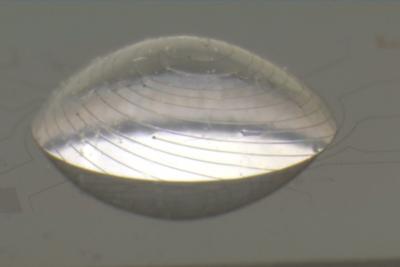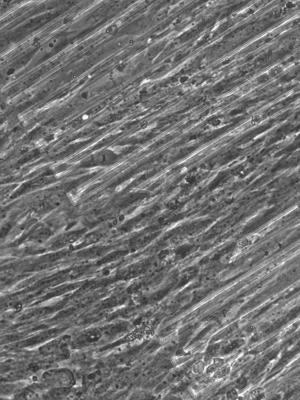Living Chip: Stretchable Multi-Electrode Array for drug screening with stem-cell-derived cardiomyocytes (Livingchip)
In this project Stem Cell derived human cardiomyocytes are used to detect cardiotoxic side effects of newly developed drugs. Cardiotoxity is at the moment one of the major issues in the release of new drugs. Regularly drugs are withdrawn from the market because they induce, under certain circumstances, lethal arrhythmias. It has therefore become of paramount importance to detect these cardiotoxic side effects in a very early stage of drug development.
As a first example of a 'living Chip' we are currently developing a stretchable multi-electrode array chip onto which living - Stem Cell derived - human cardiomyocytes are plated in a nutritious solution. An array of electrodes on these chips measure the field potential of the cardiomyocytes while they are subjected to various drug compounds. It is known that the ion channels which regulate the contraction of the cardiomyocytes are sensitive to mechanical strain. By stretching the electrode array the strains as they occur in the human heart can be mimicked resulting in a much more accurate model of the human heart under exercise conditions.
The startup company Pluriomics combines the Stem Cell expertise of the group Anatomy and Embryology of the Leiden University Medical Center (LUMC) with our Cytostretch technology to offer the best cardiotoxity drug-screening service available and to use this platform for drug-target discovery.

Project data
| Researchers: | Ronald Dekker |
|---|---|
| Starting date: | January 2009 |
| Closing date: | January 2015 |
| Partners: | Group Anatomy and Embryology, Leiden University Medical Center (LUMC), Pluriomics, Philips Research Eindhoven |
| Contact: | Ronald Dekker |